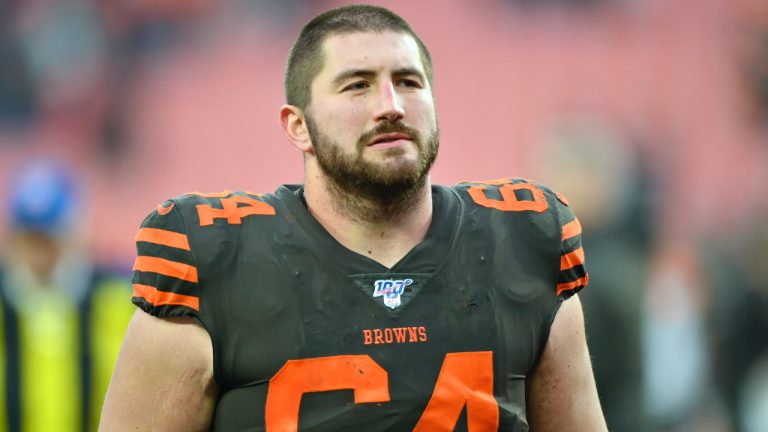JC Tretter, the influential and often outspoken president of the NFL Players Association (NFLPA), has announced his resignation, marking a significant turning point in the labor union’s leadership. His departure comes during a time of internal restructuring and strategic reevaluation within the NFLPA, an organization representing more than 2,000 active professional football players across the National Football League. Tretter’s resignation signals both the end of an era and the beginning of a new chapter for one of the most visible labor unions in professional sports.
Tretter, a former NFL offensive lineman who played primarily with the Green Bay Packers and the Cleveland Browns, has served as NFLPA president since March 2020. His leadership coincided with one of the most turbulent periods in recent league history. From navigating the COVID-19 pandemic to overseeing negotiations related to player safety, collective bargaining, and off-field conduct, Tretter has been at the center of the NFL labor conversation.
A Voice for the Players
One of the defining characteristics of JC Tretter’s presidency was his strong advocacy for player health and safety. During the COVID-19 outbreak, Tretter was instrumental in establishing protocols that allowed the NFL to continue operations while minimizing risk to players and staff. Under his guidance, the union worked closely with league officials to implement weekly testing, virtual meetings, and strict isolation rules.
Beyond the pandemic, Tretter was also vocal about issues like artificial turf injuries, offseason workout demands, and player workload. He used his platform to challenge team practices that he believed were harmful to long-term player health, often publishing open letters or blog posts to express his stance. His data-driven approach and willingness to criticize the league when necessary earned him both respect and criticism.
Tretter’s background as a player added credibility to his advocacy. He wasn’t just a figurehead; he had experienced the grind of the NFL firsthand. That authenticity helped him connect with union members, many of whom appreciated having a leader who understood their challenges both on and off the field.
Leadership Amid Transition
Tretter’s tenure was also notable for his efforts to modernize and professionalize the union’s operations. He was part of a broader push to reorient the NFLPA’s priorities, focusing on long-term benefits, mental health resources, and financial education for players. With the increasing attention paid to post-retirement health issues such as CTE (chronic traumatic encephalopathy), the union faced pressure to offer better support systems. Tretter helped lay the groundwork for future initiatives in these areas.
His resignation, however, comes at a time when the NFLPA itself is undergoing significant internal changes. Sources close to the organization have described a “union overhaul” that involves redefining leadership roles, updating governance procedures, and reevaluating external partnerships. While details of these changes remain under wraps, Tretter’s departure suggests that the union may be moving in a new strategic direction—one that could involve younger voices, new business strategies, and perhaps a shift in tone when negotiating with league officials.
Legacy and Impact
While Tretter may not have had the high-profile charisma of some past union leaders, his tenure will likely be remembered as one of steadfast commitment and quiet strength. He led not with spectacle, but with substance. His emphasis on player empowerment and transparency has left a lasting impression on the NFLPA’s culture. Whether dealing with controversial issues like vaccine mandates, non-contact injuries on turf fields, or player suspensions for off-field conduct, Tretter’s stance was consistently grounded in fairness, facts, and what he believed was best for his fellow players.
One of the biggest accomplishments during his time was helping finalize and implement the 2020 Collective Bargaining Agreement (CBA), a 10-year deal that came with both praise and criticism. Some argued the deal provided security and financial stability for the majority of players, while others believed the union conceded too much to the league. Regardless, it was a complex negotiation process, and Tretter’s role in managing internal debates and external pressures was significant.
Unanswered Questions
Tretter’s resignation leaves a vacuum that the NFLPA must now move quickly to fill. The timing is particularly critical, as the NFL continues to face pressing issues around gambling policy, the use of artificial intelligence in training and performance analysis, and evolving concerns about player autonomy in contract structures.
Moreover, there are lingering questions about what prompted Tretter’s resignation. While publicly framed as part of a broader union overhaul, some insiders speculate that internal politics and philosophical disagreements about the future direction of the NFLPA may have played a role. Was Tretter forced out by factions pushing for a different leadership model, or did he step down voluntarily to allow a younger generation to lead? At this point, speculation remains unconfirmed.
What Comes Next
As the NFLPA prepares to elect new leadership, players and observers alike will be watching closely. The next president will inherit a complex legacy—one shaped by a global pandemic, a shifting sports media landscape, and growing player activism. Whoever takes the helm will need to balance tradition with innovation, negotiation with confrontation, and short-term wins with long-term vision.
For JC Tretter, his time as NFLPA executive may be over, but his influence will likely be felt for years to come. Whether he returns to public service, the private sector, or even commentary roles within sports media, Tretter exits with a reputation as a thoughtful, principled leader who wasn’t afraid to challenge the status quo.
In an age when the business of sports is becoming ever more complicated, the role of unions—and the people who lead them—has never been more important. JC Tretter’s departure marks the end of one era and the uncertain beginning of another. How the NFLPA navigates this transition could shape the future of professional football for decades to come.



